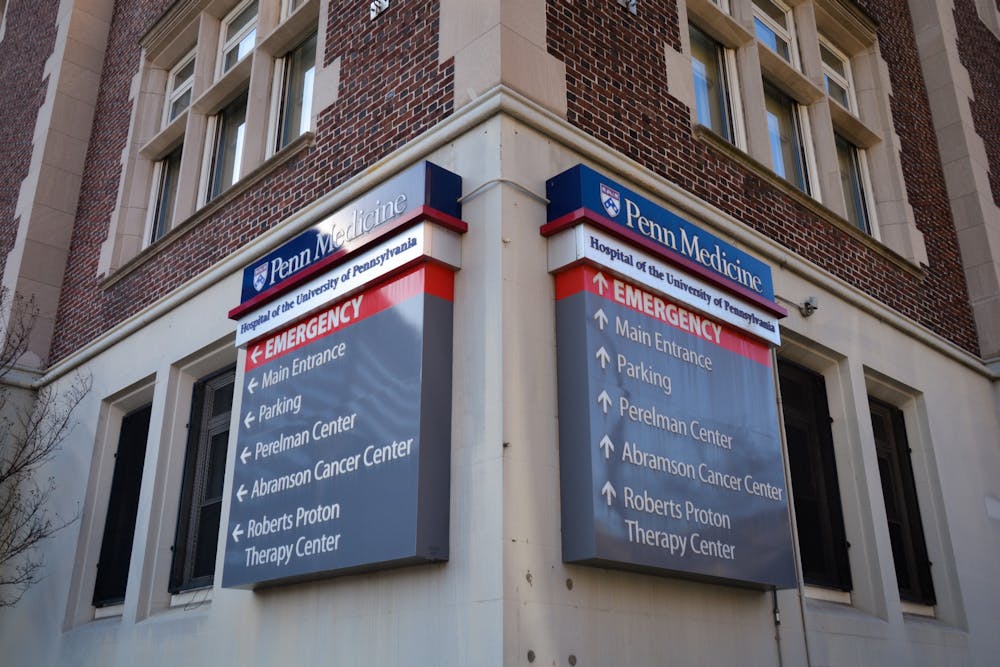
Penn Medicine will include pregnant women, a demographic historically excluded from clinical research, in their trials of learning how to treat COVID-19 patients.
Penn Medicine will include pregnant women, a demographic largely excluded from clinical research, in a trial examining the use of convalescent plasma to treat COVID-19 patients.
Convalescent plasma therapy is an experimental treatment involving the transfusion of plasma — the liquid portion of blood — donated from the blood of recovered COVID-19 patients to people who have severe COVID-19.
A team led by Katharine Bar, Assistant Professor of Infectious Diseases in the Perelman School of Medicine, launched two clinical trials to test convalescent plasma therapy on COVID-19 patients last month, The Philadelphia Inquirer reported.
Pregnant women have previously been excluded from these trials out of concern for the woman and the fetus, the Inquirer reported, which has led to a lack of data on treatment for pregnant women.
“Historically, why pregnant [and lactating] women were excluded was out of benevolence. That benevolence has morphed into patriarchy. And what it means now is when we treat [pregnant] women for anything that is not related specifically to pregnancy [or breastfeeding], we guess," Michal Elovitz, Director of Penn's Maternal and Child Health Research Center and professor in Women's Health, said.
Many members of the medical community have voiced the need to include pregnant and breast-feeding women in clinical trials.
In March, the Coalition to Advance Maternal Therapeutics wrote a letter to the National Institutes of Health and the Food and Drug Administration demanding that pregnant women be included in vaccine and treatment trials for COVID-19, the Inquirer reported. CAMT comprises more than 20 medical and advocacy groups.
"There needs to be a cultural shift to protect women through research rather than from research,” the letter read.
The first of the convalescent plasma clinical trials tests 50 COVID-19 patients in critical conditions, and the second tests 80 patients with COVID-19 related pneumonia, The Inquirer reported. While no pregnant patients have been enrolled for either trial so far, they will be offered enrollment if they meet the eligibility criteria, Elovitz said.
Associate Professor of Clinical Pathology and Laboratory Medicine Nicole Aqui launched the first clinical trial in May after collecting plasma from recovered patients, Penn Medicine News reported.
Convalescent plasma has been used in the past to treat viruses such as SARS, MERS and Ebola, but results have been inconclusive, the Inquirer reported.
A study on convalescent plasma therapy in Wuhan, however, has shown that 200 milliliters of convalescent plasma improved symptoms in critically ill COVID-19 patients after three days and eliminated coronavirus from the blood after seven days.
In April, Director of Penn's Center for Cellular Immunotherapies and immunotherapy professor at the Perelman School of Medicine Carl June proposed using the drug cyclosporine to reduce the reproductive ability of the coronavirus. After recovering from COVID-19 himself, June is attempting to donate his plasma for convalescent plasma therapy.
The Daily Pennsylvanian is an independent, student-run newspaper. Please consider making a donation to support the coverage that shapes the University. Your generosity ensures a future of strong journalism at Penn.
Donate







